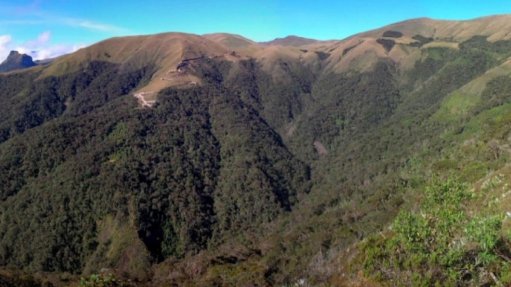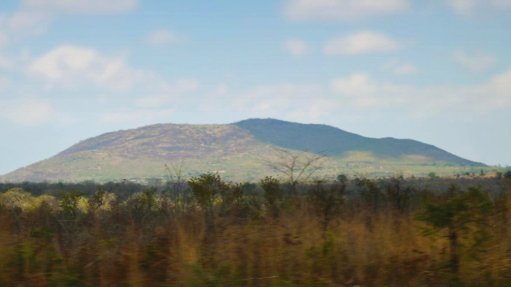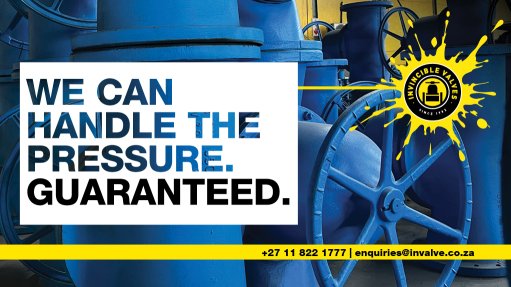Body calls for immediate measures to arrest collapse of SA’s water treatment facilities
The Scientific Advisory Group on Emergencies (SAGE) is recommending several urgent measures to prevent a widening collapse of South Africa’s water treatment facilities amid a cholera outbreak.
While the source of the cholera outbreak, which is currently centred around Hammanskraal, in Tshwane, with cases also reported in the Free State and Mpumalanga, is yet to be determined, SAGE noted that it is likely that several factors contributed to the outbreak, including dysfunctional wastewater treatment facilities.
“SAGE concurs with Department of Water and Sanitation (DWS) officials that poor water quality in Hammanskraal is likely due to the failure of the Rooiwal wastewater treatment works to meet the desirable final effluent quality for discharge to the Apies river, which, in turn, flows into the Leeukraal dam, where the Temba water treatment works abstracts water for treatment and distribution,” the group said in its Strategic Advisory on Wastewater Management in South Africa.
SAGE, which is housed within the Academy of Science of South Africa (ASSAf) and is steered by members of ASSAf and the South African Young Academy of Science, believes that the loss of lives to cholera in Hammanskraal was avoidable and is symptomatic of a widening collapse of water treatment facilities countrywide.
“Left unchecked, such an unfolding collapse could precipitate multiple concurrent health and environmental emergencies,” it said in the statement issued earlier this month, which outlined a series of recommendations to mitigate the risk of any potential collapse of water treatment facilities in South Africa.
According to SAGE, the DWS should, leveraging its Water Partnership Office and collaborating with various partners, prioritise the urgent remediation of dysfunctional and failing wastewater treatment plants nationally.
In August 2022, the DWS, the Development Bank of Southern Africa and the South African Local Government Association (Salga) established the Water Partnership Office as a special-purpose vehicle to facilitate partnerships and manage joint accounts for specific funding for projects implemented through public-private collaboration in the water and sanitation sector.
The Strategic Advisory on Wastewater Management in South Africa notice also suggested that the DWS should engage water service providers (WSPs) and wastewater management officials on wastewater plant investment, infrastructure financing, technical competence and infrastructure security, besides others.
This should be done in collaboration with Salga, the Department of Cooperative Governance and Traditional Affairs, the Government Technical Advisory Centre, the Municipal Infrastructure Support Agent, the Water Partnership Office and the Water Regulatory Commission.
In line with this, SAGE endorsed proposed amendments to Section 62 of the Water Services Act to make it clearer which functions fall under a WSP and which functions fall under a water services authority (WSA), as well as proposals to introduce an operator’s licence system for WSPs, which will focus on competence and performance levels based on gazetted minimum norms and standards for water and sanitation services and outcomes, including the provision of safe, adequate and reliable services to customers.
“Where relevant, the DWS should take over the water and sanitation function of dysfunctional WSPs, in terms of Section 139(7) of the Constitution, Section 63 of the Water Services Act (Act 108, of 1998), and Section 19 of the National Water Act (Act 36, of 1998),” SAGE commented.
The advisory group further endorsed the amendment to Section 63 of the Water Services Act to enable and empower the DWS to take over technical, revenue collection and other functions of a WSP that is consistently failing to provide the required water services even after receiving DWS directives to address weaknesses and noncompliance with gazetted norms and standards.
Further, SAGE endorsed DWS proposals to introduce standardised credit control and debt recovery measures across all water boards and water trading entities, as incorrect billing and failure to collect revenue contributes to rising debt levels to water boards and lead to systemic failures and dysfunction in wastewater facilities.
Another endorsement is improved norms and standards for the setting of tariffs by local authorities, with the proviso that proposed tariff increases be equitable to facilitate access to water by the poor and indigent.
In line with this, SAGE endorsed the Water Regulatory Commission’s strategy to provide strategic regulatory expertise, best practice, insight, advice and guidance on water-sector pricing tools and methodologies and the legislative mandate to strengthen the credibility, transparency, accountability, competence and operational efficiency of the regulatory function in the water sector.
“The DWS should commit to enhancing governance and accountability in relation to water management. Noncompliant WSP officials should be subject to consequence management, including disciplinary action, fines and, where applicable, criminal charges.”
The DWS, working with the Department of Cooperative Governance and Traditional Affairs, should support public accountability on the part of WSPs through promoting public awareness and more stringent enforcement, in relation to responsible stewardship of water and wastewater management.
Meanwhile, the funding of research on innovative wastewater management practices and technologies should also be prioritised by the departments of Higher Education and Training and Science and Innovation, in collaboration with statutory science funding bodies, including the Water Research Commission and the National Research Foundation,.
South Africa’s National Development Plan advocates for the use of technologies that minimise the use of water resources, encourage recycling and reuse, as well as encourage the development, demonstration, and validation of appropriate alternative water efficient and off-grid sanitation solutions.
SAGE suggested that the DWS collaborates with, among others, the South African Sanitation Technology Enterprise Programme’s water efficient toilet initiative to encourage the widespread adoption of low-flush and other water-saving toilets in South Africa.
Article Enquiry
Email Article
Save Article
Feedback
To advertise email advertising@creamermedia.co.za or click here
Press Office
Announcements
What's On
Subscribe to improve your user experience...
Option 1 (equivalent of R125 a month):
Receive a weekly copy of Creamer Media's Engineering News & Mining Weekly magazine
(print copy for those in South Africa and e-magazine for those outside of South Africa)
Receive daily email newsletters
Access to full search results
Access archive of magazine back copies
Access to Projects in Progress
Access to ONE Research Report of your choice in PDF format
Option 2 (equivalent of R375 a month):
All benefits from Option 1
PLUS
Access to Creamer Media's Research Channel Africa for ALL Research Reports, in PDF format, on various industrial and mining sectors
including Electricity; Water; Energy Transition; Hydrogen; Roads, Rail and Ports; Coal; Gold; Platinum; Battery Metals; etc.
Already a subscriber?
Forgotten your password?
Receive weekly copy of Creamer Media's Engineering News & Mining Weekly magazine (print copy for those in South Africa and e-magazine for those outside of South Africa)
➕
Recieve daily email newsletters
➕
Access to full search results
➕
Access archive of magazine back copies
➕
Access to Projects in Progress
➕
Access to ONE Research Report of your choice in PDF format
RESEARCH CHANNEL AFRICA
R4500 (equivalent of R375 a month)
SUBSCRIBEAll benefits from Option 1
➕
Access to Creamer Media's Research Channel Africa for ALL Research Reports on various industrial and mining sectors, in PDF format, including on:
Electricity
➕
Water
➕
Energy Transition
➕
Hydrogen
➕
Roads, Rail and Ports
➕
Coal
➕
Gold
➕
Platinum
➕
Battery Metals
➕
etc.
Receive all benefits from Option 1 or Option 2 delivered to numerous people at your company
➕
Multiple User names and Passwords for simultaneous log-ins
➕
Intranet integration access to all in your organisation


















